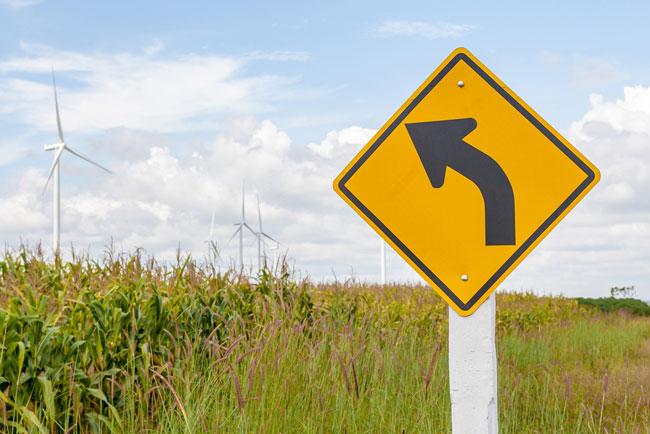
It’s too early to say for sure of course but there are definite signs that a gradual evolution (rather than revolution) of government clean energy policy is underway. If so, this can only be a good thing for confidence in the renewables sector and Australia in general.
Despite early signs that Turnbull 2.0 was keen on placating the rampant anti-renewable right wing of the party — indeed his explicit support of Direct Action was a shock to many Australians — there have been signs since that point to change.
One is the remarkable conversion, or reversion to type (take your pick), of the Environment Minister “Genial” Greg Hunt.
Now most of you will recall that Greg was the smiling face behind the worst of the government excesses during the Abbott scorched earth policy against renewables.
Time after time Greg would front the media, looking shaky and shocked, as if he hadn’t slept in a month, to announce the latest attack on the renewable energy industry. This from the strident anti carbon tax campaign to defunding renewable energy agencies, a move that has since been stalled in the Senate.
In a surprise move, Hunt retained his Environment portfolio under the new, more moderate Turnbull administration, a move that brought a collective face palm from renewable energy sector and commentators alike.
But then a strange thing happened. Greg started acting as a proper “Environment Minister” and started making noises you’d expect from one charged with protecting the world we live in.
Here’s a few examples:
“[I have] expressed my view that renewables are not only a fundamental part of our energy mix now and increasingly in the future but also that I find them and have always found them an appropriate part of Australia’s energy.” AM 25/9/2015
“… obviously under Malcolm Turnbull there is a history of a deep long support for renewable energy.” Sky News 21/9/2015
In accordance with the new Greg, Turnbull and his advisors quietly moved responsibility for the CEFC and ARENA to Environment, away from the troglodyte Industry portfolio, where fossil fuel advocates generally ran riot. In a key pointer to the future of clean energy policy for this administration, Hunt proceeded to announce that he will end the ban on the Clean Energy Finance Corp investing in wind and small scale solar.
So what exactly does Hunt’s apparent policy turnaround on renewable energy agencies CEFC and ARENA mean for the solar industry? A great deal says SolarQuotes founder Finn Peacock who points out the importance of their respective roles.
“CEFC provides funding for solar (and other renewable) projects that risk-averse commercial lenders often shy away from,” says Finn.
“This reliable source of funding is important for the solar industry that needs accelerated growth for the sake of the climate, especially when it is competing with hugely subsidised fossil projects (like the proposed tax-payer funded rail line for Adani). CEFC is also turning a profit for the taxpayer, so it is not a subsidy.”
Finn makes the point that agencies such as ARENA help Australia lead in disruptive and innovative technology.
“ARENA provides funds for new renewable technology. It supports the research, demonstration and deployment of bleeding edge clean tech so we can keep more of it in Australia. That’s exactly what Malcolm said we need to do in his first speech as PM,” he adds.
Does Greg Hunt see the agencies in the same way? Of course Greg’s a politician and used to making backflips of which an Olympic diver would be proud. But could it be that supporting a positive government policy on clean energy is a core belief of the now long-term Environment Minister? Greg’s apparent Damascene conversion may indicate the clean energy is to be included in the clarion call for emerging technologies as part of the innovation agenda so strenuously underlined by Malcolm Turnbull.
We may have turned the corner on clean energy policy in this country, now to catch up with the rest of the world.

 RSS - Posts
RSS - Posts



The judgement is still out, but don’t forget so far we have a new shovel, but still the same shit
Increasing spending on small scale wind and solar is all very well but this only helps power companies to provide green power to on sell to us at high prices.
I would rather see more support for roof top solar with end users with suitable roofs helping to provide 90% + of their own green power with their own panels.
This takes the demand for company supplied power / stations to a much lower level with the end user contributing in a subsidised way to the capital cost of owning their own panels which I suspect is cheaper for the community than windmills and mirror farms and as it built up more it would allow closing the more polluting power stations.